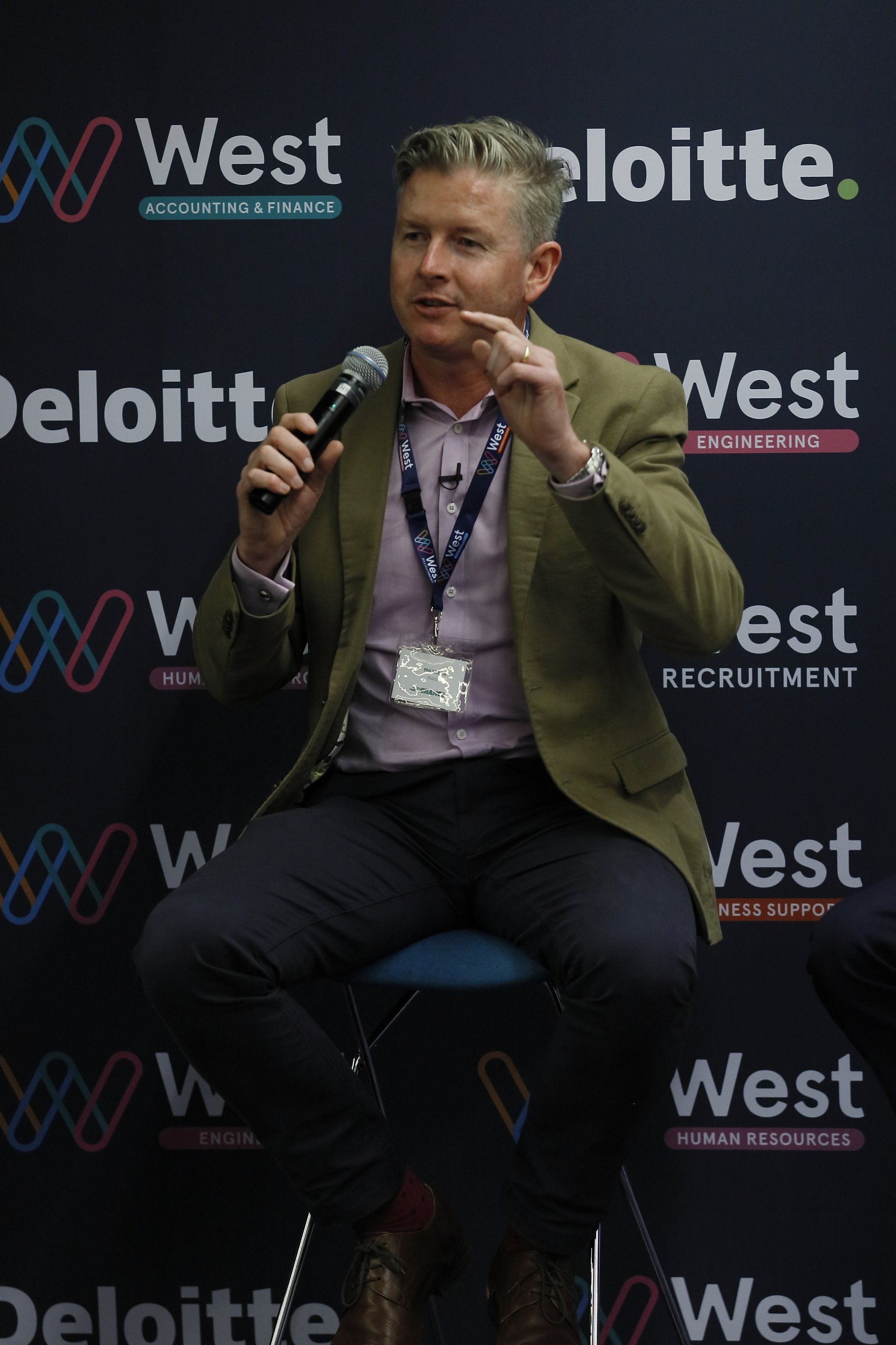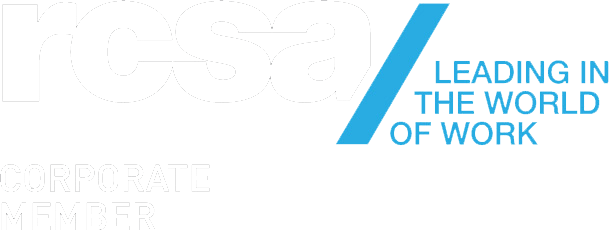Introduction
If you are a qualified finance professional with a few years of valuable experience under your belt, the time is ripe for you to lift your head from the daily
routine and give some serious consideration to the direction in which your career is heading.
It’s time to actively manage your career instead of waiting for things to happen. Perhaps you
are wondering whether you have what it takes to become a CFO, the financial leader who is a
member of the C-suite?
While you’re confident that you have the requisite drive and dedication, do you have the broader skills and experience needed to forge your way to the
top? Read on to discover exactly what the CFO skillset is and receive some constructive advice on how to acquire them if they are lacking. As a first step, let’s take a look at the CFO’s role in present-day organisations.
The role of a CFO
Although a CFO’s job description will vary depending on company type and size, the CFO is usually regarded as the second-incommand and primary source of support to the CEO.
Finance is their key responsibility, but they need a wider skill set in order to be truly effective. This skill set can be divided into three main areas: core financial
competence, business acumen and soft skills.
SKILL SET ONE
Forecasting, budgeting, wider financial
capabilities, up-to-date technical
understanding, statutory compliance,
and being a financial ‘translator’.
SKILL SET TWO
Internal company knowledge, familiarity
with the external market, problem solving,
data-driven decision-making and risk
management.
SKILL SET THREE
Communication, relationship and team
building, leadership, change management,
sound judgement and strategic vision.
While you may already have some experience in many of these areas, it’s vital to develop expert ability in all of them if you have your eyes on the prize of becoming a CFO.
Skill set one
Core financial competence
1. Forecasting
Before budgets can be created, there must be a long-term forecast. Aspiring CFOs must be able to liaise with other business units (sales, marketing, IT, procurement, manufacturing, operations, HR, facilities management) and assess their input data in order to create a forecast, a collection of informed estimates about the organisation’s financial direction. Accurate long-term forecasting assists in determining the company’s future strategy. Short-term forecasts are used to update budgets once actual results are in.
How to develop forecasting skills
Growing your network and building relationships with personnel in other areas of the business is essential, helping you to acquire a detailed knowledge of how the company functions. Also try to cultivate an understanding of the industry sector in which you are operating, plus any external competitive, disruptive, political and regulatory challenges (more tips on this below).
2. Budgeting
Armed with the forecast data, a CFO proceeds to budgeting, a financial outline of what the company wants to achieve in a given period, typically the coming
year. As controller of the purse strings, the CFO must be able to budget correctly, recognising all the variables which will impact on revenue and costs, as well as on the cash flow and some other aspects of the balance sheet
(e.g. debtors, inventory). The CFO must also implement a system for comparing the budget with actual results, and analysing variances.
How to develop budgeting skills
You’ve probably already had some involvement in the budget process, but possibly only in one aspect (e.g. overhead expenses). To further your experience, ask to shadow a more knowledgeable mentor, or request permission to attend budget meetings as an observer.
3. Wider financial capabilities
A CFO needs to wear many hats, and must therefore be a competent financial generalist rather than a narrow specialist. This means being familiar with not only financial reporting and taxation, but also treasury functions (investment, credit, cash flow), financial aspects of HR (payroll, employee share schemes, superannuation) and IT (accounting systems, data analytics).
How to acquire wider financial capabilities
Embrace every opportunity to expand your skillset, including online courses, wide reading and leveraging your continued professional development (CPD) options. Request shortterm secondments to other departments in the finance division, if available, or ask to be involved in projects outside your comfort zone. And take on board how important it will be to head up a team with a variety of abilities, a squad which you, as CFO, will need to recruit, motivate and retain. (More about this below.)
4. Up-to-date technical understanding
Except in very small companies, the CFO is not required to also be CIO. So there is no expectation that a CFO will be an expert in all areas of IT. However, disruption in finance and accounting is only going to escalate, and you will need more than a nodding acquaintance with big data and data analytics, automated processing, AI and machine learning, and cyber security.
How to improve your technical understanding
Cultivate a close relationship with the CIO, or another knowledgeable person in IT. Ask them to explain in layman’s terms any concepts with which you are unfamiliar, and keep you informed of new developments. Unsurprisingly, the online world is also a great FinTech information source. Consider subscribing to newsletters, podcasts and email updates on this topic, so that advances in the field don’t take you by surprise. Try The Wall Street Journal’s CIO Morning Download or The Australian’s Technology newsletter.

5. Being a financial ‘translator’
Just as IT seems to have its own language, finance can also be a mystery to outsiders. As CFO it will be your job to interpret financial data so that it can be understood and used to advantage by senior leaders and board members. At its simplest level, it means being able to translate the business numbers into goals, and the goals into numbers. In publicly listed companies, this responsibility may extend into explaining the organisation’s financial strategy to shareholders.
How to become a financial ‘translator’
This skill is best acquired by listening to, and learning from, your current CFO’s approach to the task. Then practise your technique by booking time with a peer or friend to whom you can explain financial matters in a non-financial way that’s easy for the layman to understand. Ensure that you understand the detail and complexities, to be able to simplify it for others to act on.
What career advice would you give your 25yr old self?
“I think the key for me is knowing where you want to go. I had a mentor many years ago once tell me that you wouldn’t get in a car and drive somewhere without knowing where you want to go so why would you do that with your career? So that was really about mapping out where your end game is, where you want to go but at the same time appreciating that there are going to be road blocks and going to be things that you will need to adapt to as you are on that journey but don’t lose sight of where you want to get to. The other piece is about making sure you take the opportunities when they come up. So don’t be afraid to take an opportunity that you may feel that you aren't fully prepared for yet, you may not have all the skills that they are looking for or you may not tick all the boxes but really challenge yourself because if you don’t challenge yourself you will stop learning and the critical piece is that you keep learning and keep challenging yourself to enable yourself to go to those next places and go to those higher levels in your career.”
Daniel James - Finance Director APAC, James Hardie
Skill Set Two
Business acumen
6. Forecasting
Before budgets can be created, there must be a long-term forecast. Aspiring CFOs must be able to liaise with other business units (sales, marketing, IT, procurement, manufacturing, operations, HR, facilities management) and assess their input data in order to create a forecast, a collection of informed estimates about the organisation’s financial direction. Accurate long-term forecasting assists in determining the company’s future strategy. Short-term forecasts are used to update budgets once actual results are in.
How to develop forecasting skills
Growing your network and building relationships with personnel in other areas of the business is essential, helping you to acquire a detailed knowledge of how the company functions. Also try to cultivate an understanding of the industry sector in which you are operating, plus any external competitive, disruptive, political and regulatory challenges (more tips on this below).
8. Problem Solving
CFOs typically face a variety of problems every day, and need to cultivate an appropriate mental attitude in order to deal with them. Keeping a level head and not getting overwhelmed is vital, as is assessing every available option and choosing the best, rather than rushing at the first solution that presents itself.
How to sharpen your problem solving skills
Solutions are often the product
of a team rather than an individual, so try to get as much teamwork and team leadership experience as possible. You may also have access to specific problem-solving training courses, involving case studies and role play, but if not there are relatively inexpensive online courses available which may be tax
deductible against your personal income. Being investigative is of course key to identifying underlying issues, as is the ability to ask insightful questions.
9. Technology
The CFO of today has become a pivotal player in driving digital advancements which stretches far beyond simply holding the purse strings. Gone are the days where the CFO purely oversees the budget allocation for tech spend, they now
need to have a seat at the table to decide on which technologies will best deliver on the strategic direction of the organisation.
How to improve your Technology skills
The tech savvy CFO will be self-educated on new technologies that enhance business operations, for example - automation, robotics, AI and cyber security. The CFO understands the changing landscape of technology within the corporate sector and engages with subject specialists, both internally and externally, to stay on top of current trends and market knowledge.
10. Data-drive decision making
Big Data is here to stay, and CFOs are likely to spend an increasing proportion of their time analysing it (or, more accurately, looking at the results of automated data analytics) and making decisions based on the insights derived from it. This is the key driver for finance professionals in the move away from transactional processing and reporting and towards analytical acumen, for everything from predicting customer behaviour to controlling costs. While CFOs don’t need to be data scientists, an understanding of the process is essential, and experience in using it as a basis for predictive insights is even better.
How to practise data-driven decision making
If your company is already using data analytics, ask to be involved in the project. If not, you can prepare for the future by honing your skills in Excel, the data analysis tool already available to everyone. Once again, there are plenty of online courses available. Meanwhile, as a member of the finance team you already have access to plenty of data. Practice by analysing monthly, quarterly and annual variances in revenue and costs, drilling down to the detail, and making hypothetical decisions based on your research (or even suggesting them to your boss).
11. Risk management
Taking the simplest definition of risk management, a CFO is quite likely to be involved in mitigating risk by overseeing the organisation’s insurance cover for fixed assets, public liability, bad debts, employee travel, key personnel and interruption of business, and any other perceived risks. Some knowledge of how insurance cover works is required, but a broader definition of risk management would have
to include a recognition of the disruptive forces at work in today’s business domain. The CFO will need to take a hand in strengthening the business model to secure it against risk from advancing technology, from competitors who are more progressive digitally, from cyber bandits, and from environmental and political change.
How to become adept at risk management
Risk management is a truly senior responsibility, and likely to be outside the experience of someone who is not already a senior manager. However, would-be CFOs can prepare for this role by getting involved in annual company insurance
policy negotiations, talking to IT personnel about cyber security risks, and taking a critical look at their own organisation to identify potential risk areas and possible
mitigation measures.
Skill Set Three
The soft-skills
12. Communicating
As a CFO you’re likely to spend a large amount of your time talking, to the CEO and other senior managers, to the board of directors, to your staff, shareholders, suppliers, banks, and possibly even customers. You’ll need to be able to stand in front of an audience and make presentations, sometimes needing to influence certain stakeholders. You will also be writing reports that contain not just numbers but a narrative as well, thus strong communication and interpersonal skills in general are an absolute essential skill to develop.
How to refine your communication skills
Growing your network and building relationships with personnel in other areas of the business is essential, helping you to acquire a detailed knowledge of how the company functions. Also try to cultivate an understanding of the industry sector in which you are operating, plus any external competitive, disruptive, political and regulatory challenges (more tips on this below).
13. Leadership
CFO’s don’t just head up the finance function. They are one of the leaders of the whole company, and the CEO may sometimes hand over authority to the CFO in other key areas besides finance. That’s a big team to manage and motivate, so effective CFOs need strong leadership skills.
How to evolve into a leader
Start to lead by example by practising discipline and being organised and considered in your working life: meet deadlines, keep appointments, and don’t let meetings overrun if you’re in charge. Look for more responsibility and take on new projects. Be prepared to delegate, and give credit to others when it’s deserved. Try to anticipate problems rather than merely reacting to them, and if conflict arises, take steps to defuse it instead of ignoring it.
You have worked your way to C-suite. Considering CFO aspirants, in getting there, what were the key career decisions you made that propelled your career to becoming a CFO?
“A key decision that helped me get to the C-suite level was a few things and my advice is definitely yes, work on your career development but not only on the technical elements but really around your leadership and how you want to be seen as a leader. The other key point to note is to broaden your experience, ask as many questions as you want, be involved in as many projects and as diverse projects as you can. There are no silly questions and definitely bringing a broad and diverse experience is key. The other decision that I made that was quite deliberate was around networking. Make sure you do meet with a lot of people and listen to their story and understand their journey to the top. Once you put all the elements together then you can adapt them to your own circumstances”
Francoise Merit - CFO, Endeavour Energy
14. Team building
A CFO is a managing executive, not a specialist operative. His or her success will be dependent on building a team with the required competencies. A CFO must embody the company’s (and their personal) brand in a way that attracts the best talent during the recruitment process. Additionally, in order for the recruitment process to conclude with successful hiring and then retaining the right people, the CFO must know how to spot talent, cultivate it and what is needed to keep these people engaged and motivated.
How to attract and retain great teams
Start by looking at the capable and successful finance professionals among your colleagues, and observing the traits that they have in common. This will help you to recognise talent in the future. Think about the aspects of your employment that keep you personally motivated and engaged (e.g. meaningful tasks, positive company culture, career progression options, competitive salary and benefits) and plan to incorporate these into your retention policy when you become CFO.
15. Change management
Long gone are the days of ‘if it ain’t broke don’t fix it’, because the pace of disruptive technological advances means that businesses must constantly adapt and stay ahead of the competition if they are to survive. CFOs must be prepared to not only initiate change, but also to ‘sell’ change to unwilling adopters. For example, when changing accounting systems, which are often the core software suite from which most other programs and procedures radiate, the CFO must be comfortable with being a catalyst for change.
How to become a catalyst for change
Whatever your current position, you will always have opportunities to suggest ways in which procedures can be improved, or outcomes enhanced. Though you may not yet be able to initiate major change, you can still be a champion and promoter of it. Be among the first to put up your hand for training in a new system, and try to convert the pessimistic naysayers with clear explanations of the advantages to be gained.
15. Strategic vision and importance of sustainability
An organisation’s CEO is usually the main driver of company strategy, but will often rely on the CFO to participate in making decisions for the future. This is because the CFO inevitably understand all facets of the business. He or she must be able to assess the financial risks and opportunities of the vision as well as convert them into practical reality via forecasting and budgets. CFOs earn their seat at the table when strategy planning is under way, by making sure that business goals and financial strategy are in alignment.
Furthermore, the CFO of tomorrow needs to be the proactive champion for sustainability initiatives and prepare their organisations for increased scrutiny on environmental, social and governance (ESG) metrics from investors, regulators, staff and the public. All of which ultimately have significant impact on the bottom line.
How to become an effective strategist
This is definitely a skill which develops with time and increasing experience. Each time you are promoted you are likely to get a better strategic overview of the business, as you move from specialised tasks to a more general and managerial role. You may already be in a position to ask yourself “What would I do if I were in charge?”, and you could pick up some strategy tips by acquiring a mentor already in a senior management role.
With regards to ESG, make sure it is a strategic priority
Develop a clear vision for what ESG means for your company and define how Finance will drive an ESG strategy. Connect performance metrics to ESG goals and measure and share impact.
The move toward ESG integration is no longer a question of “when,” but “how.” Your organisation may not have a tangible strategy today, but this can be a great opportunity for Finance to start shaping it.
At West Recruitment
we understand the
importance of finding
the right fit.






